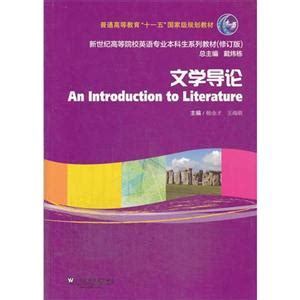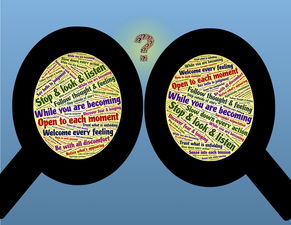Title: Mastering Chinese Literature in English: Strategies for Success
Learning Chinese literature in English requires a strategic approach that encompasses language proficiency, cultural understanding, and literary appreciation. Whether you're a student, scholar, or enthusiast, navigating the complexities of Chinese literary works in translation demands dedication and guidance. Here are some effective strategies to help you excel in your journey of mastering Chinese literature in English:
1. Develop a Strong Foundation in English:
To comprehend Chinese literature in English translation, a solid grasp of the English language is essential. Enhance your vocabulary, grammar, and reading comprehension skills through consistent practice. Engage with a variety of English texts, including fiction, poetry, and nonfiction, to familiarize yourself with different writing styles and linguistic nuances.
2. Understand Cultural Contexts:
Chinese literature is deeply rooted in its cultural heritage, shaped by centuries of history, philosophy, and tradition. Gain insight into Chinese culture, customs, and societal norms to contextualize literary themes, motifs, and symbolism. Explore supplementary materials such as historical texts, philosophical treatises, and cultural commentaries to deepen your understanding of the sociocultural backdrop against which Chinese literary works are set.
3. Select Diverse Literary Genres:
Chinese literature encompasses a wide range of genres, from classical poetry and philosophical texts to contemporary novels and avantgarde literature. Explore diverse genres to broaden your literary horizons and gain exposure to different literary forms and techniques. Experiment with reading various translations and interpretations to appreciate the stylistic nuances and cultural intricacies embedded within each genre.
4. Study Renowned Authors and Works:
Familiarize yourself with key figures in Chinese literature, such as Lu Xun, Li Bai, and Mo Yan, whose works have left a lasting impact on literary discourse. Delve into seminal literary masterpieces, such as "Dream of the Red Chamber," "Journey to the West," and "The ThreeBody Problem," to explore the richness and diversity of Chinese literary tradition. Analyze their themes, characters, and narrative structures to discern underlying motifs and literary techniques.
5. Utilize Annotated Translations and Study Guides:
Access annotated translations and study guides to facilitate comprehension and interpretation of Chinese literary texts in English. Annotations provide valuable contextual information, linguistic explanations, and cultural insights that elucidate obscure references and complex cultural nuances. Study guides offer critical analyses, discussion questions, and thematic explorations to deepen your engagement with the text and stimulate intellectual inquiry.
6. Join Literary Discussion Groups and Forums:
Participate in literary discussion groups, book clubs, and online forums dedicated to Chinese literature in English translation. Engage in lively debates, exchange perspectives, and share insights with fellow enthusiasts and scholars. Collaborative learning environments foster intellectual curiosity, critical thinking, and cultural exchange, enriching your appreciation of Chinese literary works from diverse perspectives.
7. Incorporate Multimodal Learning Resources:

Embrace multimodal learning resources, such as audio recordings, visual adaptations, and multimedia presentations, to enhance your understanding and enjoyment of Chinese literature in English. Listen to audiobook versions narrated by native speakers to improve listening comprehension and pronunciation. Watch film adaptations and theatrical performances to visualize characters, settings, and plot developments, enriching your interpretation of the text.
8. Engage in Comparative Literature Studies:
Explore comparative literature studies to juxtapose Chinese literary works with their international counterparts and discern crosscultural influences and universal themes. Examine literary connections, intertextual references, and transcultural dialogues to appreciate the global resonance and enduring relevance of Chinese literature in the context of world literature.
9. Cultivate Critical Thinking and Analytical Skills:
Hone your critical thinking and analytical skills through close reading, textual analysis, and literary interpretation. Evaluate narrative structures, character development, and thematic elements to discern layers of meaning and interpretive possibilities within Chinese literary texts. Engage with secondary sources, scholarly articles, and literary criticism to deepen your understanding and refine your analytical insights.
10. Practice Regularly and Persistently:
Mastery of Chinese literature in English requires consistent practice and unwavering dedication. Set aside dedicated time for reading, reflection, and study, integrating Chinese literary works into your daily routine. Embrace challenges, celebrate achievements, and persevere through setbacks, recognizing that language acquisition and literary appreciation are lifelong endeavors that require patience and perseverance.
By following these strategies and embracing the richness of Chinese literature in English translation, you can embark on a rewarding journey of discovery, enlightenment, and cultural enrichment. Remember to approach each literary work with an open mind, a curious spirit, and a deep appreciation for the profound beauty and timeless wisdom encapsulated within the pages of Chinese literary masterpieces. Happy reading!
Conclusion:
Mastering Chinese literature in English is a multifaceted endeavor that requires linguistic proficiency, cultural understanding, and literary appreciation. By developing a strong foundation in English, understanding cultural contexts, exploring diverse genres, studying renowned authors and works, utilizing annotated translations and study guides, participating in literary discussion groups, incorporating multimodal learning resources, engaging in comparative literature studies, cultivating critical thinking and analytical skills, and practicing regularly and persistently, you can navigate the complexities of Chinese literature in English translation with confidence and competence. Embrace the richness of Chinese literary tradition, embark on a journey of intellectual exploration, and immerse yourself in the timeless beauty and profound wisdom of Chinese literary masterpieces.











